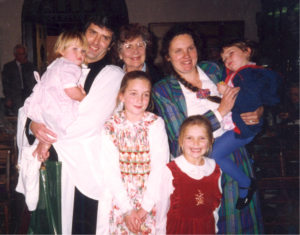Like most children, my favourite time of year was Christmas. I had lots of favourite times, but Christmas was that bit extra special. It was because we had an open coal fire blazing in the hearth making the house toasty warm. We had extra special food like turkey and Christmas pudding, and if I was lucky, I got more than two toys.
As I grew up my expectations changed but the thrill of Christmas didn’t. Even as an adult I still find Christmas wonderful, not for me anymore but for my children and grandchildren. I can relive the thrill of my own Christmas experience through the faces of others.
For some, Christmas in a very difficult time. Personal circumstances, lack of money, bad relationships and a whole host of other things just can’t help but get in the way. Sadly, for some, Christmas is the worst time of the year. Christmas is meant to be a time of giving. Today, that seems to mean spending lots on as many presents as you can afford even when they already have so much. As a Christian, I believe in giving, and giving for giving’s sake, not because it is expected of me.
Jesus told us that we don’t need a lot of money to make a difference to others, in fact we don’t really need to spend a penny. All we need to do is give. We can give time, support, help and anything else that will, in the giving, help those who receive. It is amazing just how much a few words of comfort can affect the hearer; a simple gesture of helping someone in and out of the house with shopping bags.
Jesus gave the greatest gift of all, a chance to live with him in his Father’s house. To give us this, he gave his life. This gift is worth more than anything money can buy. I am not suggesting that you ignore friends and family at Christmas, in fact quite the opposite: be generous, but that doesn’t need to be in the price and number of gifts. Just remember to be even more generous to those who are in need. We live in a society that is build on wealth, but it should be built on kindness and love, both of which we can give in abundance without cost. Have a wonderful and giving filled Christmas.
Rev David Teece, St Peter’s Church, Stanley

